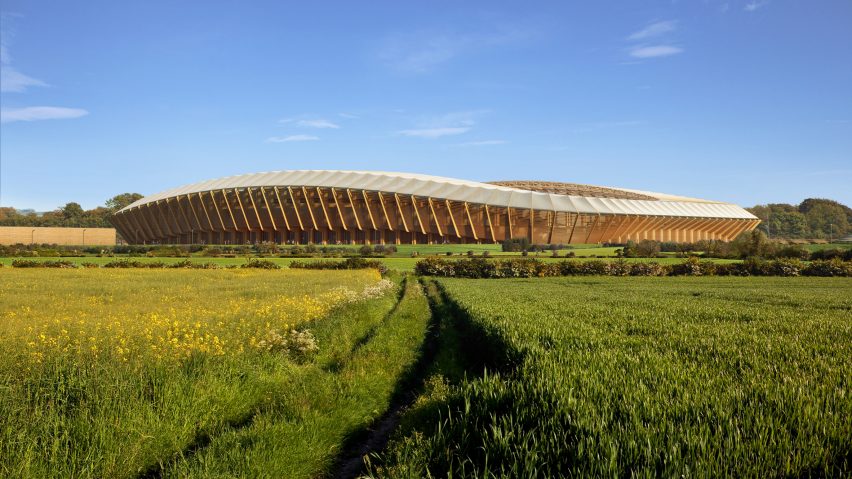
Zaha Hadid Architects to build world's first wooden football stadium
Zaha Hadid Architects has been commissioned to design a 5,000-seat stadium built entirely from wood, for the British football club Forest Green Rovers.
The London-based firm set up by the late British-Iraqi architect Zaha Hadid won an international competition to design the stadium for the National League team, seeing off competition from over 50 other entrants from Europe and America.
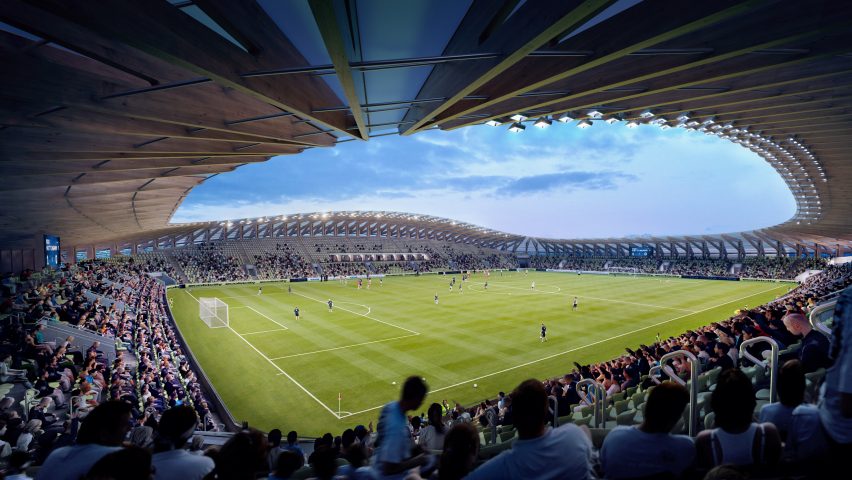
Designed to be the world's greenest football stadium, it will be constructed completely from wood and powered by sustainable energy sources.
"The really standout thing about this stadium is that it's going to be entirely made of wood – the first time that will have been done anywhere in the world," said Forest Green Rovers chairman Dale Vince.
"The importance of using wood is not only that it's a naturally occurring material, it has very low carbon content – about as low as it gets for a building material," he added.
"Our new stadium will have the lowest carbon content of any stadium in the world. This really will be the greenest football stadium in the world."
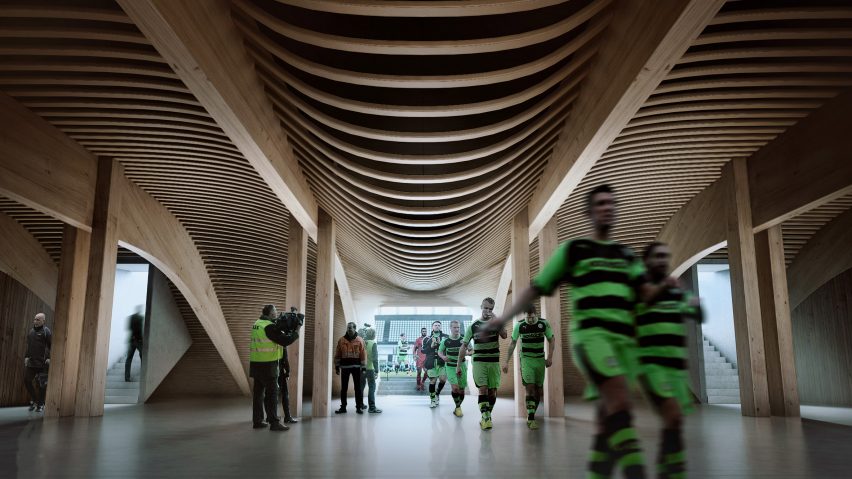
The stadium will feature an undulating bowl made up from slats of timber. The position of each of its seats will be calculated to give spectators uninhibited views of the pitch.
ZHA was awarded the contract on the merit of its previous stadiums, including the Aquatics Centre it designed for the London 2012 Olympics and the arena it is working on for the 2022 FIFA World Cup in Qatar.
The firm also designed a stadium for the Tokyo 2020 Olympics, but this was controversially scrapped in favour of a wooden version drawn up by Japanese architect Kengo Kuma.
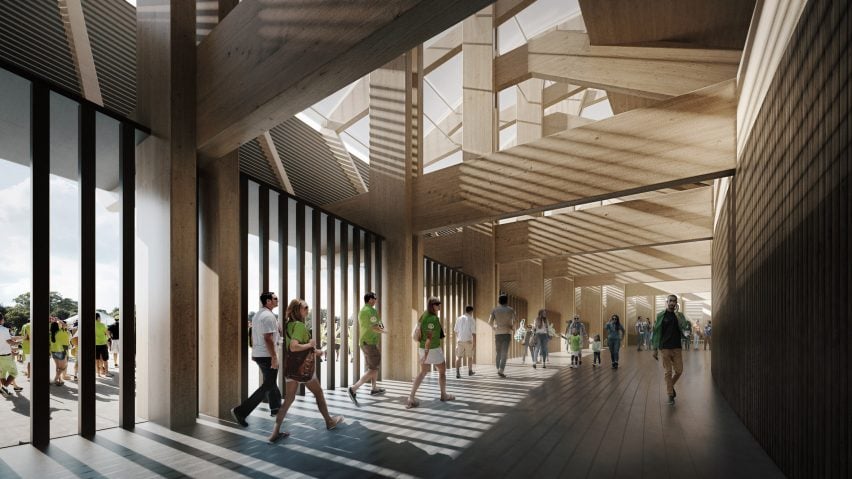
The proposal also includes a £100 million nature reserve, a public transport hub and the restoration of Stroudwater canal in Gloucestershire. Commissioned by renewable energy company Ecotricity, the Eco Park development aims to be carbon neutral or negative, by generating its own energy onsite.
One half of the Eco Park will be dedicated to sporting facilities – including the new stadium, training pitches and a sports science hub – while the other will operate as a green technology business park.
"The club's heritage, ambition and vision reflect our own, combining the latest material research and construction techniques with new design approaches to build a more ecologically sustainable and inclusive architecture," said ZHA director Jim Heverin.
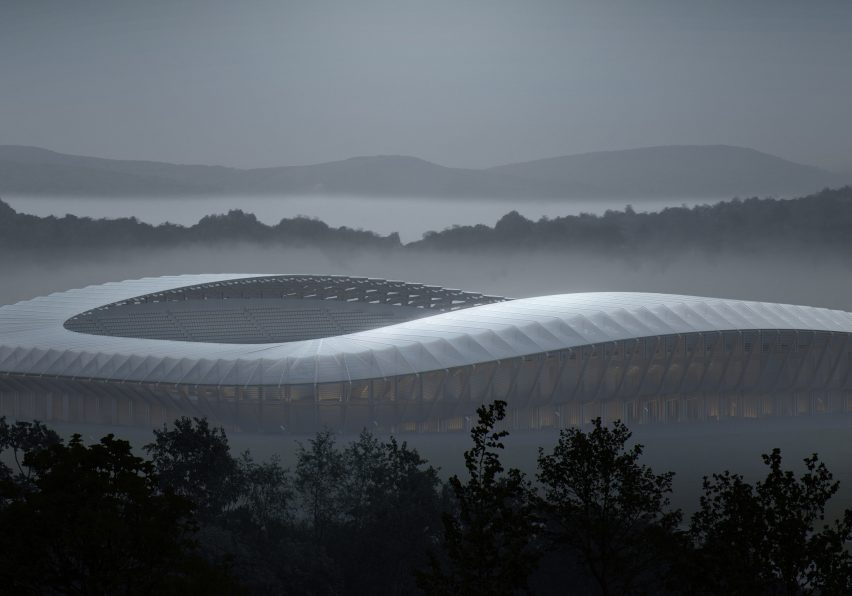
ZHA announced it would continue to practice without its late founder and figurehead, who died earlier this year.
The studio, now led by Hadid's former partner Patrik Schumacher, has continued to have a prolific output – recently completing a port authority building in Antwerp, and unveiling plans for a archaeology centre for Saudi Arabia and a Brit Awards trophy.
Renderings by Zaha Hadid Architects.